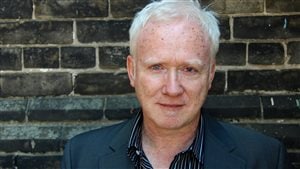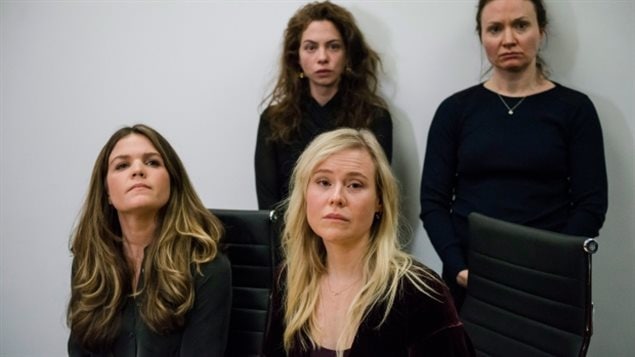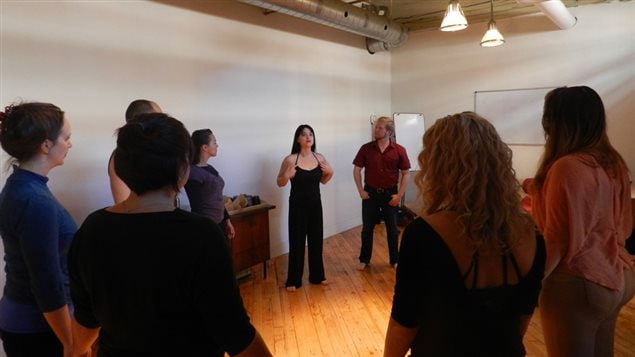The entertainment industry has been rocked by allegations of a variety of sexual misconducts. While the famous producer Harvey Weinstein case in the U.S. may have been the spark, allegations have spread to Canada.
In Quebec the founder of the Just for Laughs festival, and a couple of well-known actors have been accused of improprieties. Recently, the actor, producer and founder of the Soulpepper Theatre in Toronto, Albert Schultz is facing sexual misconduct allegations and a civil lawsuit.
Bruce Pitkin is an arts administrator and former actor and director an presently the Executive Director at Theatre Ontario, where they’re taking action to change things in the theatre world.
Listen
In the latest fallout of the Albert Schulz case, more than 280 artists have signed a public letter, supporting the four women who filed a civil lawsuit against Schultz.
The letter urges Soulpepper, the theatre company he co-founded, to do more to ensure a safe working environment.
In an effort to eliminate future cases of sexual improprieties, theatre companies are holding a variety of workshops to address issues of consent

These are called “Intamacy for Stage” workshops, and there are workshops for directors and workshops for actors.
Pitkin notes that the theatre environment is not a cut and dried environment. He says roles of actors, directors, and others are often more fluid than other types of work. He also points out that in the close-knit theatre world the lines between professional and private life can also be blurred.
Pitkin says an “Intimacy for Stage-for directors” is being planned in Toronto this weekend and that such workshops are now being held in many countries.

He points out that these are helping to develop knowledge and awareness of the issue of consent in a wide variety of situations and roles in the theatre.
Pitkin says, the theatre world and entertainment world more widely is already beginning to change long-standing attitudes because of this series of recent allegations of sexual harassment and abuse of authority.
He notes that in addition, through such workshops clear guidelines are resulting so that safe practices and consents agreed to- or not- in rehearsal will be replicated in further rehearsals and performances and if anything goes outside the lines, it can be stopped before problems arise.
He says safer workplaces in the theatre are already beginning to develop.







For reasons beyond our control, and for an undetermined period of time, our comment section is now closed. However, our social networks remain open to your contributions.